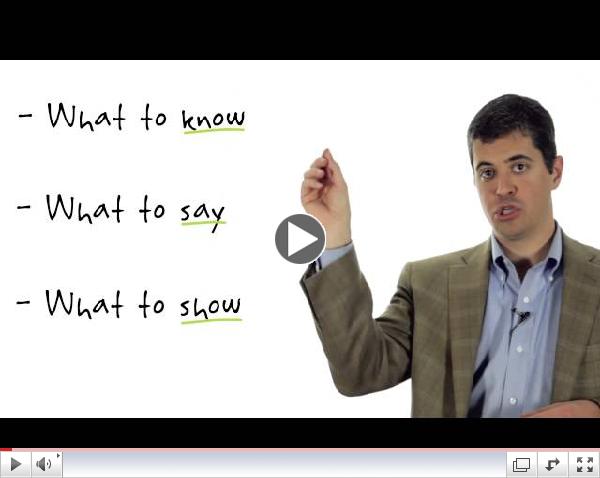 | |
What is Sales Messaging? |
with Tanner Mezel, DSG
The right sales messaging tools and training can bridge the divide between high level strategy and what gets communicated in customer sales conversations. This results in your "big ideas" turning into real results.
But how do you effectively package the actual words your sales channels should communicate in live customer conversations? Discovery questions that will demonstrate insight? Stories that a customer will find compelling? The model to draw on a whiteboard that will illuminate the customers' real situation and define a roadmap for solving those problems?

MXL Partners CEO/Founder, Michael Griego, is an affiliate partner with DSG. He conducts sales enablement, sales process, messaging and effective leadership projects for companies with "big ideas" and a need to equip and transform entire sales organizations.
Send us a note if you'd like to set up a conversation with Tanner and Mike discuss your situation.
________________________________ |
|
New 2013 2nd Edition!

42 Rules to Increase Sales Effectiveness
by Michael Griego
Foreword by Mark Leslie, Venture Capitalist and former Founder/CEO of Veritas Software

"This book rocks - I've got pages dog-eared and notes throughout!" - Enterprise VP of Sales
"42 gems that any entrepreneur can use to their company." - Start-up CEO
"An excellent, well-written guide that de-mystifies the process for repeatable sales success." - VP Business Development
|
|
Challenging Winners
There's a current debate in some sales circles around the popular Challenger Sale book and a recent Rain Group report entitled "What Sales Winners do Differently."
The issues are over the so-called death of solution selling and the importance of relationships in selling. The controversy is overstated. Both the book and report, and the research conducted on both fronts, are actually helpful in driving a new composite picture of the modern effective salesperson and the astute customer/buyer.
Just Differing Perspectives: Salesperson vs Buyer
The Challenger Sale studied top performing salespeople (designated top producers in companies sampled) and their aggregated attributes. The Sales Winners report studied buyers in B2B deals won and compared what they said the "winning" reps did vs the "2nd place" reps. (Or 3rd or 4th or 5th place reps for that matter - all lost.)
The recent report found that "Sales Winners" educate with new ideas/perspectives, collaborate, persuade about achieved results, listen well, understand needs and process, help the customer navigate, craft a compelling solution, connect personally and show company, product and personal value. Makes sense to me. Good to know what it looks like from the buyer's perspective. Sounds like attributes of a balanced Sales Superstar which I wrote about originally in 2009 as Rule #12 (see below) in my book 42 Rules to Increase Sales Effectiveness.
So What's the Answer?
Simple. The magic is in the honed blending of proactive, advanced knowledge and selling skills with sensitive and astute personal attributes and people skills. The good news is that it's teachable. No need to debate it. Better to get on it.
Are you a Challenging, Winning, Superstar?
|
|
|
High-Performance Sales Organizations

You want a high performing sales organization? Focus on account penetration, customer retention, specific sales call planning, drive internal feedback, and focus training in teaching product, market, customer and competitor insights to your sales team.
Recent research by Sirius Decisions highlights major differences among salespeople. Some key points:
- Skills Differences
- Mediocre Performers (60-80% of Quota) seek quantity ("More leads!") vs. Very High Performers (90%+ of Quota) who focus on account penetration and expanding their reach
- Very High Performers and High Performers (80-90% of Quota) spend more time on customer retention than Mediocre Performers
- Sales Process Differences
- Very High Performers are more than twice as likely as lower performers to create a Pre-Call Plan before conducting a sales call
- High Performers have more frequent interactions with their internal sales and marketing teams than Mediocre Performers
- Knowledge Differences
- Very High Performers and High Performers focus on learning about their products, market, competition and persona profiles.
In sales, it's not who you know, it's what you know, what you do, and how well you do it.
More... |
|
Rule #12 - Be a Superstar 
(2nd Edition)
We all like winners and can appreciate superstars when we see them. We admire the superstar athlete who is talented beyond question and helps his team win games. But we've seen superstars come in a variety of packages. Some are boisterous and obnoxious to their teammates, fans and opponents. Others are quiet and gentle, shy and retiring, saving their talking for the gridiron or field of play. Others fall somewhere in between. In all cases there is physical skill, talent, discipline and mental toughness. There are similarities with the superstar salesperson, but with a few variations.
What makes a sales rep a star? Producing results and bringing in the numbers, of course. What do top producing reps, i.e., superstars, all have in common? The attributes and make-up of a Sales Superstar are like the balanced five points on a star:
1. Driver - a self-starter ...
2. Technician - technically self-sufficient ...
3. Facilitator - manages individual and group communications ...
4. Empathizer - can express identification with others ...
5. Servant - a humble and healthy sense of self ...
...While these gifts and attributes may come naturally to some, they can be honed, developed and fine-tuned. But balance is the key. If any one point is extended or over-exaggerated then the star is off balance. An effective superstar is strong and equally weighted on all superstar points.
Are you a sales superstar?
More... |
|
|
Drucker on Sales Effectiveness 
"If it's stupid but works, it's not stupid."
- Peter Drucker, American management consultant, educator and author |
|
|